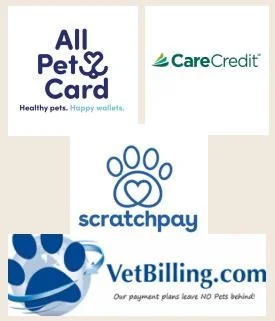Dental Health
With dental health month coming up in February, let’s talk about how to help our furry friends. All dogs and cats are prone to dental disease, they don’t keep up with their dental care like we do so they may easily and rapidly develop problems.
Signs your pet might have dental disease, Bad breath, red or swollen gums, and yellow or brown teeth are often an indicator. A common assumption is that our cats and dogs will stop eating if they have pain in their mouths. However, this is quite uncommon. Most of the time our patients continue to eat despite severe dental disease.
What causes this to happen? Saliva and bacteria (plaque) build up around the tooth and coat it as a natural process, if we do not brush or clean their mouths this becomes tartar. The tartar pushes the gums away from the tooth and creates pockets where bacteria can become trapped. These pockets can cause the tooth root to abscess and the tooth to become loose and fall out.
How do I know how bad their mouth is? A complete dental examination done by a veterinarian allows us to grade the severity of the dental disease. Once we have determined this grade, we can help you develop the best treatment plan for you and your pet.
Treatment for dental disease. A professional dental cleaning done by a veterinarian is needed when either tartar or gingivitis (inflammation of the gums) is diagnosed during an exam. For us to properly care for your pet we need to do this under general anesthesia (since they can’t sit still and hold their mouth open for us like we can at our dentist). This allows us to fully assess their mouths with dental radiographs and perform a full exam of each tooth. Dental radiographs allow us see under the gum line and see if there are any teeth that may need to be extracted, and ensure that there are no tooth roots remaining after extractions. Once these assessments are made, we then scale and polish each tooth, and any necessary extractions are then performed.
What prevents tartar build up. We recommend brushing your animals’ teeth at home with a pet toothpaste and brush, be sure that you use animal toothpaste as it has enzymatic action and is non toxic. This is the very best preventative measure. For this to be effective, teeth must be brushed at least 3 times per week. Once tartar is present, it cannot be reversed with brushing and requires a professional dental cleaning. There are water additives and dental chews that can help prevent tartar buildup. Look for the Veterinary Oral Health Council (VOHC) approved products that are proven to be effective.




